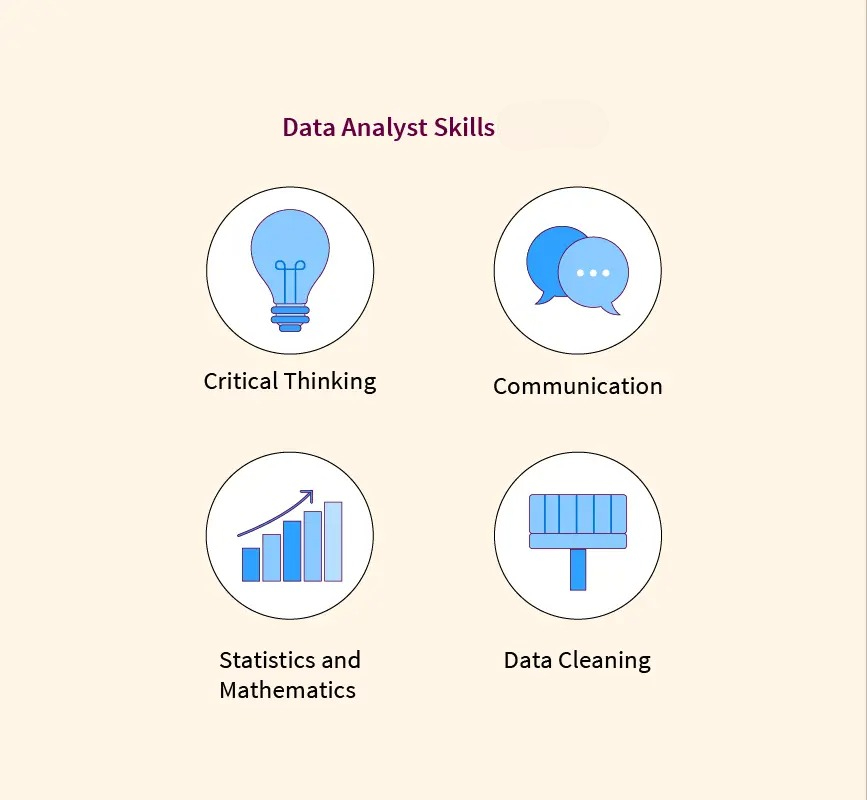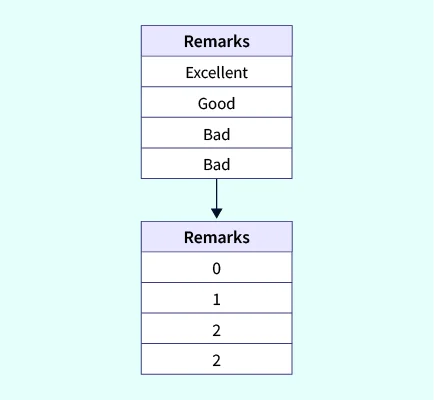Machine Learning (ML) is transforming healthcare by enhancing diagnostics, personalizing treatments, and improving operational efficiency. It enables early disease detection, tailored care, and streamlined workflows. Explore how ML is revolutionizing healthcare with innovative applications, driving better patient outcomes and a more efficient, data-driven future.
What is Machine Learning?
Machine Learning (ML) is a subset of artificial intelligence (AI) that empowers systems to learn from data and improve their performance without being explicitly programmed. It enables computers to identify patterns, make predictions, and automate decisions by analyzing vast datasets.
The core principle of ML involves training models using algorithms and historical data. These models then adapt and evolve as they process new information. For example, in healthcare, ML models can analyze medical images, predict disease outcomes, and automate repetitive tasks.
As a foundation of AI, ML is at the forefront of technological advancement, driving innovation across industries, particularly in healthcare, where data-driven insights are transforming patient care and operational efficiency.
Why is Machine Learning Important for Healthcare?
Machine Learning (ML) is revolutionizing healthcare by improving patient outcomes and streamlining operations. Its ability to analyze vast amounts of medical data enables early diagnosis, precise treatment, and efficient management of healthcare systems.
Key Contributions of ML in Healthcare:
- Early Diagnosis of Diseases: ML algorithms analyze medical imaging, such as X-rays and MRIs, to detect conditions like cancer at early stages, increasing survival rates.
- Predictive Analytics for Patient Care: ML models predict patient risks, allowing healthcare providers to intervene proactively and deliver personalized care plans.
- Drug Discovery: By accelerating drug research, ML identifies potential candidates for treatments, significantly reducing development time and cost.
The growing demand for data-driven insights highlights ML’s critical role in healthcare decision-making. From improving diagnostic accuracy to optimizing workflows, ML provides actionable intelligence, enabling better resource allocation and patient care.
As healthcare embraces digital transformation, ML remains pivotal in addressing industry challenges, improving outcomes, and shaping a more efficient, patient-centric future.
Key Applications of Machine Learning in Healthcare
Disease Diagnosis and Prediction
Machine Learning (ML) is transforming disease diagnosis and prediction by harnessing its ability to analyze medical imaging and clinical data with unparalleled precision. ML models, trained on large datasets, can identify patterns in diagnostic tests that may be overlooked by human experts. For instance, ML algorithms analyze X-rays, MRIs, and CT scans to detect early signs of diseases such as cancer, heart conditions, and neurological disorders. These systems improve diagnostic accuracy and enable timely interventions, which can be critical for patient outcomes.
- Example: Google DeepMind’s AI tool has set benchmarks in detecting eye diseases by analyzing retinal scans. It has proven to be as accurate as leading ophthalmologists, highlighting the potential of ML in enhancing diagnostic capabilities.
Personalized Medicine
Personalized medicine is revolutionizing patient care by tailoring treatments to individual needs, and ML plays a central role in this advancement. By analyzing genetic information, medical history, and lifestyle factors, ML algorithms predict the efficacy of various treatment options for each patient. This approach minimizes the need for generalized therapies and ensures that treatments are highly effective with fewer side effects. Personalized medicine also addresses rare diseases that may not respond to standard treatments.
- Example: Precision oncology uses ML models to identify the most suitable cancer treatments based on a patient’s unique genetic makeup, enabling targeted therapies that improve survival rates and quality of life.
Drug Discovery and Development
The traditional process of drug discovery is time-consuming and expensive, often taking years of research and clinical trials. ML has drastically accelerated this process by predicting molecular interactions, identifying potential drug candidates, and optimizing chemical formulations. ML algorithms analyze vast datasets of biological and chemical information to shortlist compounds likely to succeed in trials, saving both time and resources.
- Case Study: During the COVID-19 pandemic, AI tools played a pivotal role in identifying potential vaccine candidates. ML-driven platforms like DeepMind’s AlphaFold helped researchers understand protein structures, expediting the development of effective treatments and vaccines within unprecedented timelines.
Administrative Automation
Administrative tasks often consume a significant portion of healthcare resources. ML-driven solutions streamline these processes, reducing workload and errors. Automation tools handle billing, appointment scheduling, insurance claims processing, and patient record management, allowing healthcare providers to allocate more time to patient care. Additionally, ML enhances resource allocation by predicting patient flow and optimizing hospital operations, ensuring better management of healthcare facilities.
- Example: Robotic Process Automation (RPA) tools are widely adopted in hospitals to manage scheduling systems, process insurance claims, and update electronic health records efficiently, leading to improved operational workflows.
Remote Patient Monitoring
The rise of wearable devices and IoT-enabled health technologies has revolutionized patient monitoring. ML algorithms process real-time data from these devices to provide actionable insights into a patient’s health. Metrics such as heart rate, blood pressure, glucose levels, and oxygen saturation are continuously tracked and analyzed to detect abnormalities. Remote patient monitoring enables early detection of potential health issues, reducing hospital readmissions and improving overall patient care.
- Example: Devices like Fitbit and Apple Watch use ML to analyze user data, providing health alerts and recommendations. Advanced IoT tools help manage chronic conditions, offering critical insights to healthcare providers and empowering patients to take control of their health.
Benefits of Machine Learning in Healthcare
Machine Learning (ML) is driving significant advancements in healthcare by offering benefits that improve patient outcomes and streamline operations. Here are the key advantages of ML in the industry:
1. Improved Accuracy in Diagnoses
ML models excel in analyzing complex medical data, enabling faster and more accurate disease detection. Algorithms trained on large datasets identify patterns and anomalies that may be missed by human observation. This precision leads to early diagnosis of critical conditions like cancer, heart disease, and neurological disorders, significantly improving survival rates and patient care.
2. Cost Reduction
By automating repetitive workflows, ML reduces operational costs in healthcare systems. Tasks such as billing, appointment scheduling, and data entry are streamlined using ML-powered tools, freeing up resources for critical areas like patient care. Moreover, ML helps optimize resource allocation, minimizing waste and ensuring efficient use of healthcare infrastructure.
3. Enhanced Patient Care
Tailored treatments powered by ML ensure that patients receive personalized therapies suited to their unique medical needs. Continuous monitoring through wearable devices and IoT tools allows real-time tracking of health metrics, enabling proactive interventions. This personalized approach not only improves patient satisfaction but also leads to better health outcomes.
4. Data Utilization
Healthcare generates vast amounts of data daily, and ML excels in processing and analyzing these datasets efficiently. By extracting actionable insights, ML empowers healthcare providers to make data-driven decisions, identify trends, and predict potential challenges. This capability ensures better planning and enhanced patient care strategies.
Challenges and Ethical Considerations
While Machine Learning (ML) offers transformative benefits in healthcare, it also poses several challenges and ethical considerations that must be addressed to ensure its responsible use.
1. Data Privacy and Security
ML systems rely on large volumes of sensitive patient data, which makes them vulnerable to data breaches and cyberattacks. Protecting this data requires robust cybersecurity measures, encryption, and secure data-sharing protocols. Failure to safeguard patient information not only risks privacy violations but also erodes trust in ML-driven healthcare systems.
2. Bias in Algorithms
ML models are only as good as the data they are trained on. If the training data is unrepresentative or biased, the models can produce skewed results, leading to inequitable healthcare outcomes. For instance, a lack of diversity in datasets may result in diagnostic tools that are less effective for certain demographics. Addressing this requires careful dataset curation and continuous monitoring to identify and mitigate biases.
3. Regulatory Challenges
Implementing ML in healthcare involves navigating complex regulatory frameworks such as HIPAA in the United States and GDPR in the European Union. Ensuring compliance with these regulations is crucial to protect patient rights, maintain data security, and avoid legal repercussions. However, staying updated with evolving laws can be challenging for healthcare providers.
4. Human Oversight
Despite its capabilities, ML cannot replace human expertise in healthcare. Over-reliance on automation risks overlooking critical nuances that require clinical judgment. Maintaining a balance between human intervention and ML-driven automation ensures ethical decision-making and improves patient trust in technology.
The Future of Machine Learning in Healthcare
Machine Learning (ML) is poised to further revolutionize healthcare with emerging trends and advancements, unlocking new possibilities for patient care and operational efficiency.
Emerging Trends
Generative AI is transforming drug discovery by designing novel compounds and accelerating the development of treatments. Advanced diagnostic tools powered by ML are becoming increasingly accurate, enabling early detection of diseases and improving patient outcomes.
Integration with IoT
The integration of ML with Internet of Things (IoT) devices is enabling real-time healthcare insights. Wearable devices and smart sensors continuously monitor patient health metrics, allowing healthcare providers to detect abnormalities and intervene proactively. This combination enhances remote care, particularly for chronic disease management.
Addressing Global Health Challenges
ML is playing a critical role in tackling global health issues. During pandemics, ML algorithms predict outbreaks, optimize resource allocation, and accelerate vaccine development. Additionally, ML-powered tools are helping underserved populations by improving access to healthcare services, diagnosing conditions in resource-limited settings, and reducing health disparities.
Conclusion
Machine Learning (ML) is transforming healthcare, offering groundbreaking solutions in diagnostics, personalized medicine, and operational efficiency. Its potential to enhance patient outcomes and streamline processes is unparalleled.
To fully realize these benefits, ethical and regulatory frameworks must guide its implementation, ensuring fairness, data security, and compliance with global standards.
Healthcare organizations are encouraged to embrace ML, leveraging its capabilities to provide superior patient care, drive innovation, and build efficient, future-ready systems. The journey toward smarter healthcare is just beginning, and ML stands at its forefront.
References:


